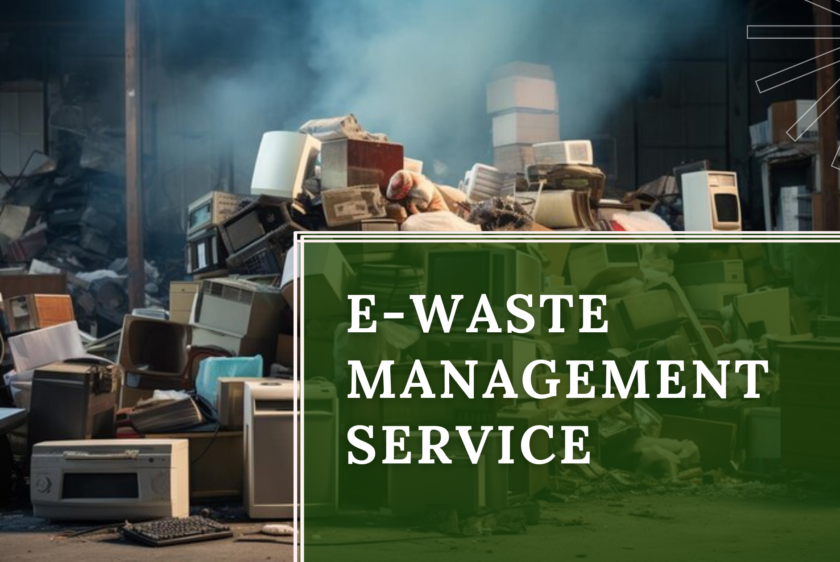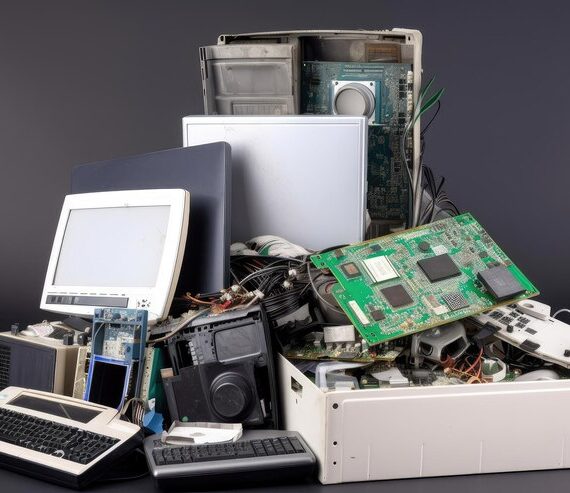
5 Essential Questions to Ask When Hiring an E-Waste Management Service
Every day, we upgrade our electronics – phones, computers, tablets – without considering the piled-up stock of outdated devices. But where does this e-waste go? Unfortunately, many people throw it away with their regular trash, leading to environmental hazards and lost resources. This is where the e-waste management agency comes in. They offer a responsible solution for disposing of your electronics, but with a growing number of options, how do you choose the right one?
When considering hiring an electronic waste management service, there are five important questions you should ask to ensure accountable disposal and minimize environmental impact.
Must-Ask Questions That Everyone Consider While Hiring E-waste Management Services –
1. What is Your E-Waste Recycling Process?
Understanding the e-waste recycling process employed by a management service is crucial in ensuring that your electronic devices are disposed of responsibly. A reputable e-waste management service should have a transparent and comprehensive recycling process that complies with environmental regulations. This process typically involves collecting, sorting, dismantling, and recycling electronic devices to recover valuable materials while minimizing environmental harm.
Importance: A clear understanding of the e-waste recycling process allows individuals and businesses to assess the service provider’s environmental practices and ensure that electronic waste is managed responsibly from collection to recycling. Transparent processes promote accountability and trust.
Drawbacks: Without insight into the recycling process, there’s a risk of electronic waste being improperly handled or disposed of, leading to environmental contamination and resource wastage.
2. Are you certified and compliant with environmental regulations?

When selecting an e-waste management service, it’s essential to ensure that they are certified and compliant with relevant regulations. Look for certifications such as e-Stewards or R2 (Responsible Recycling), which demonstrate that the company adheres to strict environmental and ethical standards in handling e-waste. Additionally, inquire about their compliance with local, state, and federal electronic waste disposal regulations to avoid legal complications.
Importance: Certifications and compliance measures indicate that the electronic waste management service follows best practices and meets industry standards for environmental security and worker safety. Choosing a certified provider reduces the risk of improper disposal and ensures ethical handling of electronic waste.
Drawbacks: Hiring a non-certified or non-compliant waste management service can lead to legal liabilities, environmental harm, and reputational damage due to potential mishandling or illegal disposal of e-waste.
3. How Do You Ensure Data Security?
Data security is one of the critical aspects of disposing of outdated electronic devices, especially for businesses handling sensitive information. Ensure that the electronic waste management service has robust data destruction protocols to prevent unauthorized access to confidential data. This may include secure data wiping, degaussing, or physical destruction of storage devices to guarantee that all sensitive information is permanently erased before disposal.
Importance: Effective data security measures protect individuals and businesses from identity theft, corporate espionage, and other cybersecurity threats associated with improper disposal of electronic devices. Choosing a service provider with solid data security protocols ensures the safe handling and disposal of confidential information.
Drawbacks: Failure to implement adequate data security measures can result in privacy violations, data breaches, and legal consequences for mishandling sensitive information, undermining trust, and damaging reputation.
4. How do you track and report on e-waste disposal?
Transparency and accountability are essential aspects of responsible waste management. Inquire about the service provider’s tracking and reporting capabilities throughout the disposal process. A reliable electronic waste management service should offer detailed documentation and reports outlining the types and quantities of e-waste collected, recycled, and disposed of. This information ensures compliance and allows businesses to track their environmental impact and contribution to sustainability efforts.
Importance: Transparent and accountable e-waste management practices build trust among stakeholders, including customers, regulators, and the community. Open communication and disclosure of information foster accountability and enable informed decision-making regarding electronic waste disposal.
Drawbacks: Lack of transparency and accountability can lead to distrust, skepticism, and suspicion regarding the service provider’s operations and impact, potentially undermining their credibility and legitimacy.
5. Does the e-waste management service offer convenient collection and transportation options?
Convenience is key when it comes to electronic waste disposal, especially for businesses dealing with large quantities of electronic devices. A reputable electronic waste management service should offer flexible collection and transportation options to accommodate your specific needs. This may include scheduled pickups, on-site collection bins, or drop-off locations for smaller quantities of e-waste. Verify that the service has proper logistics and transportation capabilities to ensure safe and efficient handling of e-waste from your location to their recycling facilities.
Importance: Offering convenient collection and transportation options is crucial because it makes electronic waste disposal easier and more accessible. It saves time and effort for individuals and businesses, especially those with large amounts of e-waste.
Drawback: If an waste management service doesn’t provide convenient options, it can discourage people from properly disposing of their electronic devices. This may lead to e-waste accumulating in homes or offices, increasing the risk of improper disposal.
Final Say!
In a nutshell, asking these five essential questions when considering hiring an e-waste management service is crucial for ensuring responsible electronic waste disposal and minimizing environmental impact. By understanding the recycling process, certifications, data security measures, and environmental policies of service, individuals and businesses can make informed decisions that prioritize ethical and sustainable electronic waste management practices. Remember, responsible e-waste disposal is a responsibility and an opportunity to contribute to a cleaner, greener future for generations to come.
Read Our More Blogs:
What Are the Challenges of E-Waste Management in Developing Countries?
What Are The Regulations For E-Waste Disposal In India?
Follow us:







